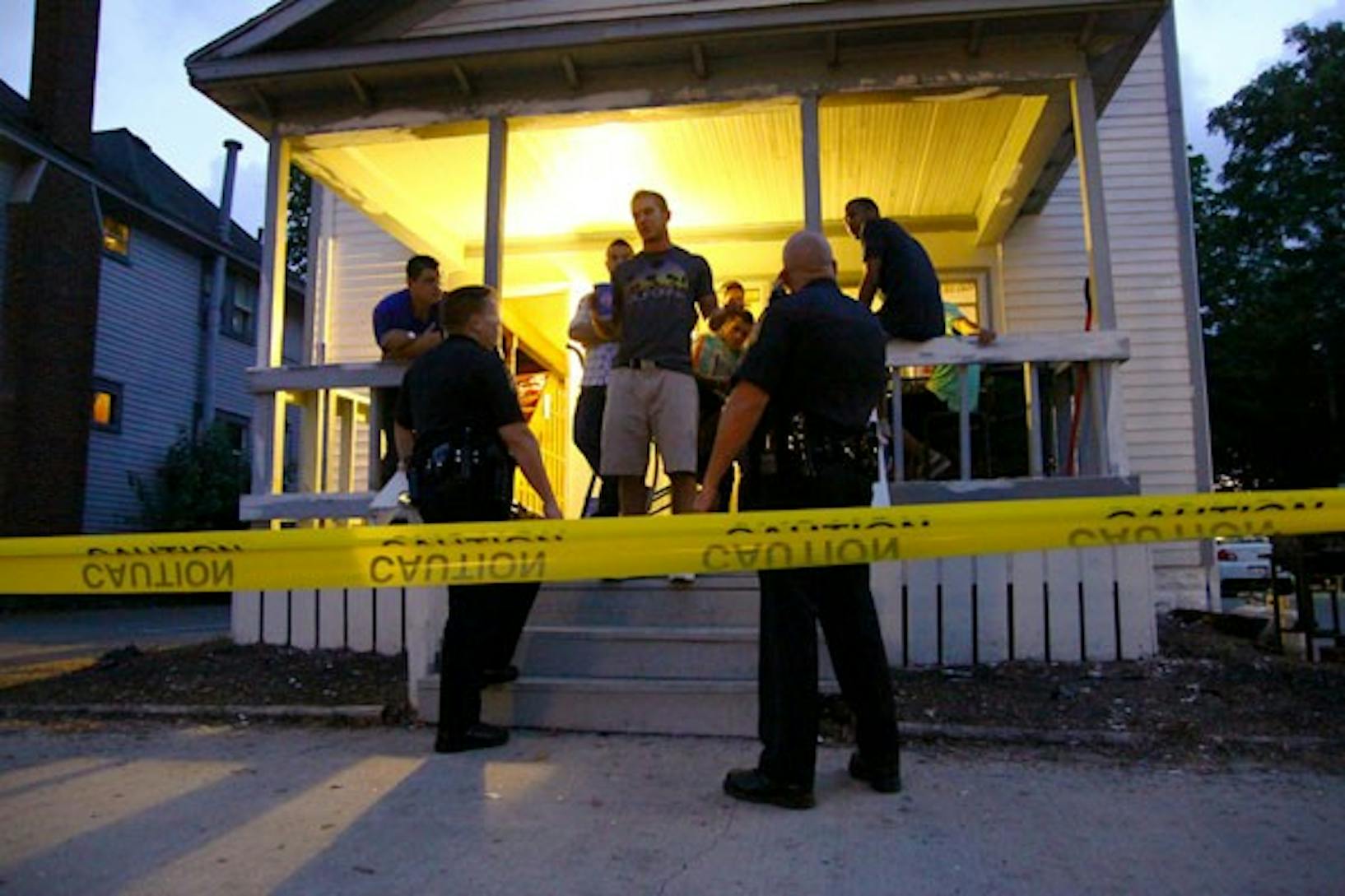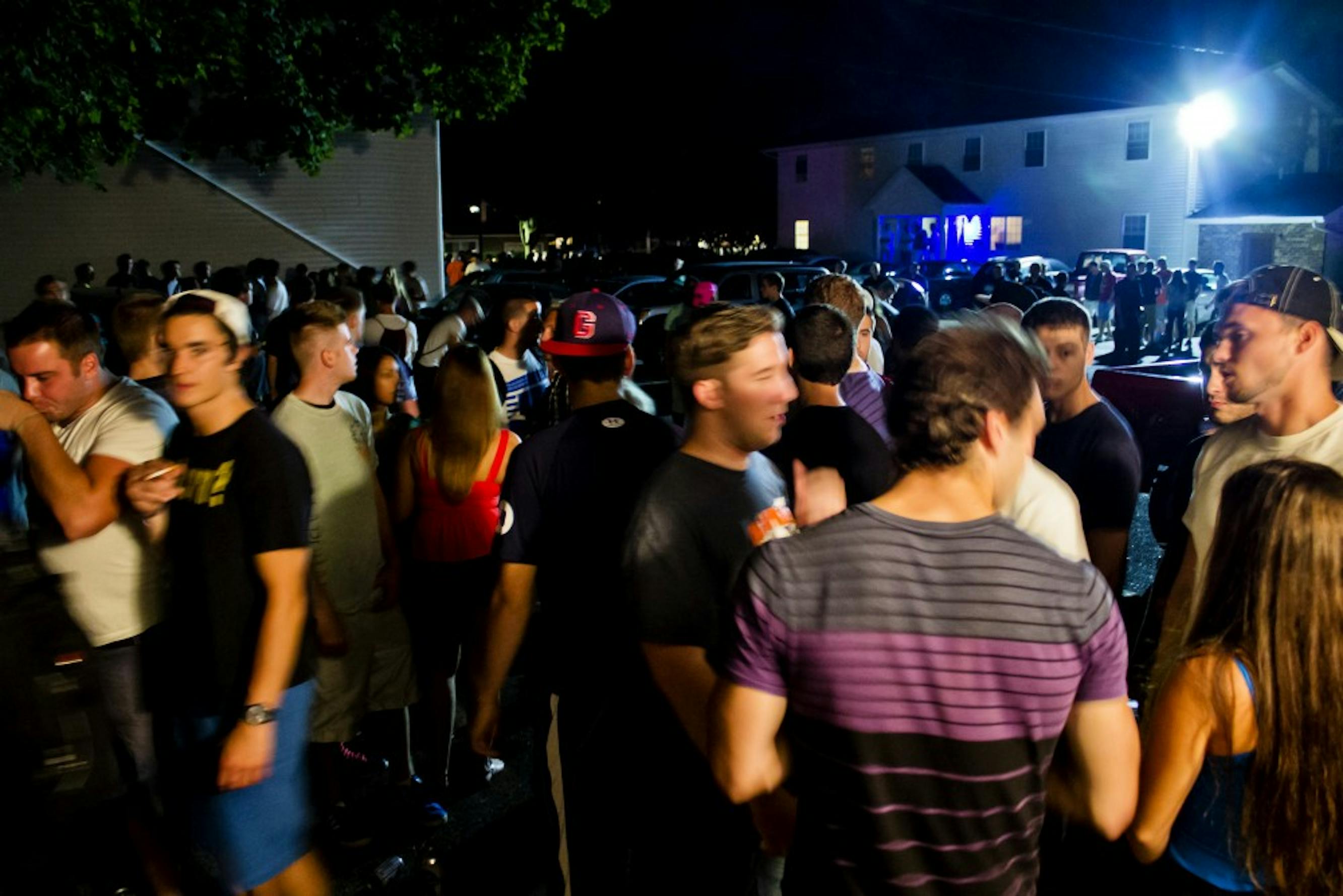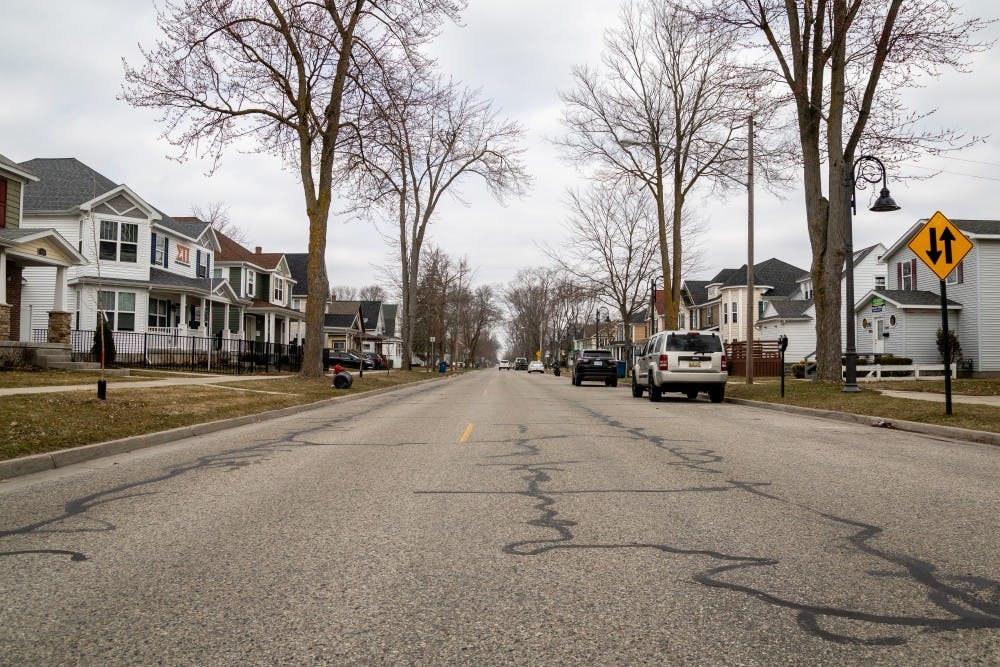Local police shift enforcement philosophy to ensure student safety at parties
It's no secret there has been a recent crackdown on college parties by the Mount Pleasant Police Department.
With this shift, there's been plenty backlash by Central Michigan University students and alumni to the Mount Pleasant Police Department. Members of the department say that they are not trying to curb student's fun.
In years past, CMU students have hosted large parties that play loud music, what MPPD calls nuisance parties. According to Paul Lauria, Mount Pleasant Public Safety director and police chief, houses along Main Street and Washington Street were overflowing with intoxicated students, so much so thata people would flow into other neighboring parties and into the streets.
The “End of the World” parties that took place in Mount Pleasant at the end of the school year in the 1980s and 1990s were reported on by AP News, LA Times and the New York Times.
“When I was a kid, I'd go to these parties and collect the beer bottles and cans. I could pull in $100-plus per night,” said Mount Pleasant resident Jerald Black. “At the 'End of the World' parties, we're talking $300-plus for collecting (bottles).”
Mount Pleasant residents and CMU alumni said that destruction of property, like burning couches and cars, minor in possession citations, fights between party-goers and other shenanigans ensued. There was only so much that officers could do to control the parties when there were so many people.
Even Playboy named CMU the 16th biggest party school in the U.S. in 1987.
"What an honor," Joe St. Henry wrote in the 1987 yearbook. "Michigan State University only got an honorable mention. The University of Michigan was not even in the running."
Resident Natillie Amaral remembers a Halloween party that she attended in 2013 where MPPD was called to break up the party.
“There was probably about 50 or 60 people in one of the Main Street houses and people were drinking and probably doing other illegal things," she said. "There was a fight between two guys that made its way outside. That's why the cops were called.

“(The police) seemed mad that they had to break up the party and the fight, but unless you were getting arrested, they didn’t touch anyone. They just arrested two of the boys who were fighting and told us to go home.”
The MPPD prides itself on having officers who treat people fairly and doesn't tolerate misbehaved officers, Lauria said.
“The best that I can say is that we are consistent across the board,” he said. “Are we perfect? No, we are humans. But we try to be consistent.
We strive for consistency and fairness.”
The crackdown
The City of Mount Pleasant created city ordinances for “nuisance gatherings” in October 1984 in response to the “End of the World” parties, and the ordinances haven't changed since.
This changed the way MPPD has approached parties in Mount Pleasant.
“The parties and gatherings were just huge (around 2015). Many of the residents around those houses felt that it’s just undesirable behavior and living conditions,” Lauria said. “Typically, when we enforced these ordinances, there wasn’t consistency, and we needed to find out what we needed to do to change this and make the city desirable for all.”
The city then focused on three things: Education, meeting with area landlords and increasing consistency.
Education
In recent years, MPPD has partnered with CMU and the Office of Student Conduct to speak at orientations to explain the nuisance gatherings ordinances to new students and the penalties that come with hosting a party or attending one. MPPD also started posting notices on student housing doors along main party streets to inform residents of the ordinances.
Meeting with area landlords
MPPD partnered with area landlords to make sure that they had rules about tenants having parties in the lease contract. Landlords were also made aware that in the ordinance, it states that a landlord can be held responsible for the behavior of their tenants.
When meeting with landlords, MPPD representatives told them that when a party was in violation of the lease, and the problem with the tenants wasn’t being resolved, the next time MPPD was called to the residence for a party, the landlord would be fined.
Increasing consistency
“Next, we were inconsistent as a policing agency,” Lauria said. “So, instead of enforcing this ordinance only on big weekends, we’re enforcing it all of the time. It doesn’t mean that if you have a party, you’ll get ticketed, that’s not what consistent enforcement is. What it is, is being mindful that if you throw this party, you better keep it under control or officers will be coming by.”
Although the nuisance gathering ordinance states that a party with more than two people can be labeled as a nuisance gathering depending on the situation, police officers are able to use their own discretion when visiting a residence.
“There is what is reasonable and unreasonable and that includes the day or the time of day, and what is happening, but it’s a very fluid, delicate balance,” Lauria said.
Where the community stands now
Lauria encourages students who want to throw a large party to go to their neighbors, and contact their landlords and MPPD, to notify them that they will be having a party and the details of the gathering. However, if a student doesn't keep the party under control, then city police could ticket the hosts.
If a party-goer gets a citation, which are misdemeanor offenses for attending or hosting a party, and doesn’t feel like they deserved the citation, they have the option to appeal the citation. They can meet with a city attorney and can have legal representation if they wish, and can plead guilty or non-guilty, or listen to an offer given to them.
Alternately, if a person has never been in trouble before, they can receive a deferment. If they stay out of trouble for six months, the citation could be waived.
Lauria said that by keeping the students accountable by MPPD, CMU and their landlords, the city can achieve a more desirable environment. Although Lauria understands that enforcing party ordinances won’t keep big parties from happening, data shows that there has been a significant drop in big, “out of control” parties.
“We are a lot better for (enforcing the ordinance),” he said. “We’re not trying to curb fun, but people have to be responsible. We can’t have things been thrown at us, or people being knocked into a coma, we've had all of those and these young adults need to understand that there are consequences to crazy parties."
By being consistent in enforcing the ordinances, Lauria’s goal was to find a "happy medium" where both students and Mount Pleasant residents would be happy.

“I think we have found it. That doesn’t mean that everyone is going to be happy about it, but what we have done seems to be working and we will continue with it,” he said.
Since the crackdown by police, reactions have been mixed. Some students have been receptive and understanding, but frustrated at the same time. Full-time residents, however, are very happy about the change.
“It’s okay to be frustrated, I get it,” Lauria said. “But you get to pick and choose the parties that you go to and if you don't like the way that we’re conducting business, then make better decisions. You don’t have to like it to respect it, but if you don’t respect it then there are consequences.”
Lauria said that the spectrum of the "happy medium" isn’t just black and white, but shades of grey. Students should be mindful of the residents next to them, but residents living in college neighborhoods should also be somewhat tolerant of student gatherings.
Officers from the CMU Police Department share Lauria’s views of how the consistency of enforcement helped keep the peace between students, residents and police departments in Mount Pleasant.
“In my 21 years of working with CMUPD, I’ve seen a decrease in big parties and in-calls of fights or injuries since the ordinances became more consistently enforced,” said CMUPD officer Mark Smoker. “This is a community, not just a college community, there are people raising families. It’s about respecting each other's right to live here.”
With many students and alumni looking back at how parties used to be and how they are now, many blame local police departments for them not being able to have fun.
“I don’t think us allowing people to throw massive parties and take over the streets versus how we enforce those ordinances should influence a student’s decision on whether they should come to CMU,” said CMUPD Lt. Cameron Wassman. “People’s safety is why these ordinances were put in place. We want to prevent injury, and having hundreds of people crowded in a house or in the streets, really makes things difficult to try to deal with safety issues that happen.”
Lauria said that there are no plans in place to change the ordinances or how they are enforced.
“It seems to be working, and we will continue with it," he said. "The safety of our students and our residents is most important and we want people to live well together.”




